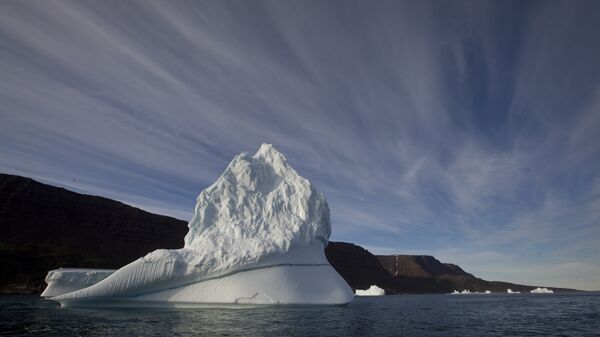Sea level continues to rise, as the plume of molten rocks beneath central Greenland heats the surface and contributes to ice melt, the research carried out by geophysicist Genti Toyokuni and his colleagues from the Tohoku University reads.
The research findings have shed light on the problem of global sea-level rise caused by the melting of the Greenland ice sheet, as well as improve people’s understanding of seismic activity in this region, the British Daily Mail cited the Japanese geophysicist as saying.
The study also found that the Greenland plume has two branches feeding into other plumes within the region, thus intensifying the heat. Professor Toyokuni expressed hope to continue the study and examine the thermal process on a larger scale.
“This study revealed the larger picture, so examining the plumes at a more localized level will reveal more information”, he told Daily Mail.
Global sea-level rise was first recorded at the beginning of the 20th century. It is considered to be one of the most threatening effects of climate change. As of now, Greenland is the biggest contributor to sea-level rise, since its ice surface has been melting for decades due to seismic activity beneath the island.
The previous study published in the Nature Communications scientific journal proved that Greenland’s largest glaciers might soon lose a more sizable amount of ice than ever predicted, as the ice is melting faster than at any time within the last 12,000 years.



